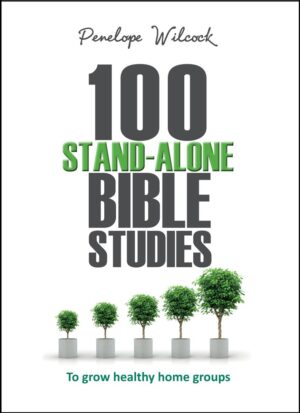



Now Jesus himself was about thirty years old when he began his ministry. He was the son, so it was thought, of Joseph… the son of Adam, the son of God.
Jesus travelled along the border between Samaria and Galilee. As he was going into a village, ten men who had leprosy met him. They stood at a distance and called out in a loud voice, “Jesus, Master, have pity on us!”
When he saw them, he said, “Go, show yourselves to the priests.” And as
they went, they were cleansed.
One of them, when he saw he was healed, came back, praising God in a loud voice. He threw himself at Jesus’ feet and thanked him – and he was a Samaritan.
Jesus asked, “Were not all ten cleansed? Where are the other nine? Has no
one returned to give praise to God except this foreigner?” Then he said to him, “Rise and go; your faith has made you well.”
Once, on being asked by the Pharisees when the kingdom of God would
come, Jesus replied, “The coming of the kingdom of God is not something that can be observed, nor will people say, “Here it is,” or “There it is,” because the kingdom of God is in your midst.”
While he was blessing them, he left them and was taken up into heaven. Then they worshipped him and returned to Jerusalem with great joy. And they stayed continually at the temple, praising God.
“Do not leave Jerusalem, but wait for the gift my Father promised, which you have heard me speak about.”
“Therefore I want you to know that God’s salvation has been sent to the
Gentiles, and they will listen!”
For two whole years Paul stayed there in his own rented house and
welcomed all who came to see him. He proclaimed the kingdom of God and
taught about the Lord Jesus Christ – with all boldness and without hindrance!
Luke’s Gospel portrays Jesus as a universal saviour for all humankind. Gentile soldiers come to John to be baptized (Luke 3:14), and Jesus is shown associating with Samaritans (Luke 9:51–52). In the first of our passages above, Luke traces the lineage of Jesus back to Adam, father of humanity (unlike Matthew, who traces the line back to Abraham, father of Judaism). In our second passage, we see a Gentile singled out from a group of people healed of leprosy, and commended for his faith. Following this story, Luke juxtaposes the teaching of Jesus in response to questioning by Jewish leaders, that the kingdom of God can never be monopolized or pinned down to a location – wherever and whoever we are, it can be found in
the midst of us.
Luke wrote the book of Acts too, and they are best understood as one two part work. It’s instructive to trace the movement of the gospel, carried like a torch from Jerusalem, the heart of the Jewish religious world, to Rome, the heart of the secular Gentile Roman world, as Luke unfolds the story over the two books. In his Gospel, Jerusalem is central. He roots the opening chapters there; the first words we hear Jesus speak are in and of the Temple (Luke 2:49). In the wilderness temptation his order differs from Matthew’s in climaxing at the Temple in Jerusalem, and the parting from Jesus’ earthly ministry focuses on Jerusalem (Luke 24:52–53; Acts 1:3–14). We watch as Luke then shows us the gospel fanning out through and across the Gentile world to the triumphant conclusion (Acts 28:28): “God’s salvation has been sent to the Gentiles, and they will listen!”
O God of the whole world, of all people and all creation, words cannot express how glad and grateful we are that your plan had room for us too. Help us remember that your gospel is for all people. Help us to live generously and openly, sharing and offering what we know of the life and love of Jesus in every way we can think of to everyone we meet. For we ask it in his holy name; Amen.